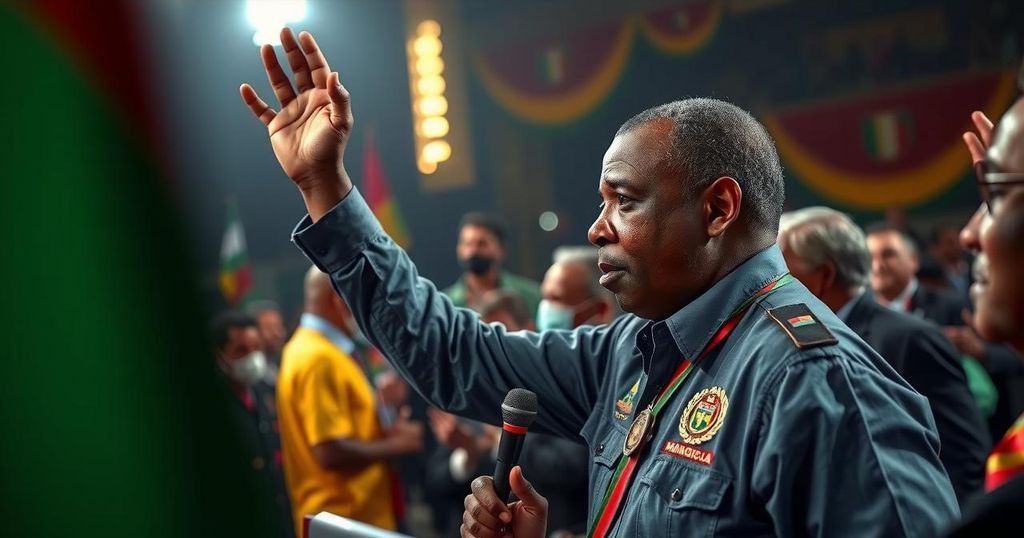Daniel Chapo of the Frelimo party has been declared the winner of Mozambique’s presidential election, gaining nearly 71% of the votes amid allegations of fraud and violence. The election process faced significant turmoil, with protests erupting in Maputo over claims of electoral manipulation. Frelimo denies these accusations and asserts that the election results reflect the citizens’ will.
Daniel Chapo has been declared the victor of Mozambique’s contentious presidential election, following significant disturbances and numerous allegations of electoral fraud. Chapo, representing the Frelimo party—which has maintained control of the nation for nearly half a century—secured approximately 71% of votes cast in the election on October 9. He is set to succeed Filipe Nyusi, who has completed his two-term limit in office. This electoral outcome emerges amidst ongoing turmoil in a nation grappling with a protracted insurgency led by Islamist extremists in the Cabo Delgado region, contributing to heightened socioeconomic disparities exacerbated by Mozambique’s wealth of natural resources, including natural gas and precious stones, contrasted against prevalent poverty and unemployment rates. Following the election announcement, violence erupted in the capital city of Maputo, where police employed tear gas and live ammunition to disperse thousands of protesters who accused the Frelimo party of electoral malfeasance, including involvement in the fatal shooting of two supporters aligned with Chapo’s principal opponent. The Frelimo party has categorically denied any accusations of fraud and repudiated involvement in the violent incidents. Ludmila Maguni, a spokesperson for Frelimo, expressed confidence in the election outcomes, stating, “Frelimo is confident that the results reflect the will of the people.” The turbulence surrounding this election may represent one of the most rigorous challenges to Frelimo’s authority since Mozambique’s independence from Portuguese colonial rule in 1975, and throughout the civil unrest that transpired in subsequent years.
The political landscape of Mozambique has been intricately shaped by the Frelimo party, which has held power since the country obtained independence from Portugal in 1975. The nation has faced significant challenges, including a civil war and recent unrest tied to an ongoing insurgency in Cabo Delgado region, which has led to both internal strife and persistent socioeconomic challenges. With vast natural resources, Mozambique’s electorate is deeply divided, as wealth generation does not always translate into improved living standards for the populace. The electoral process has historically encountered allegations of fraud, raising concerns about the legitimacy of its democratic processes and the overall integrity of elections in the nation.
In conclusion, Daniel Chapo’s recent election victory has sparked significant controversy amid accusations of electoral fraud and violence in Mozambique. The Frelimo party remains steadfast in its claims of legitimacy, despite widespread discontent among citizens. This election has the potential to be a pivotal moment for Mozambique, revealing the depths of political and social divisions that continue to affect the nation’s governance and stability.
Original Source: www.nytimes.com






